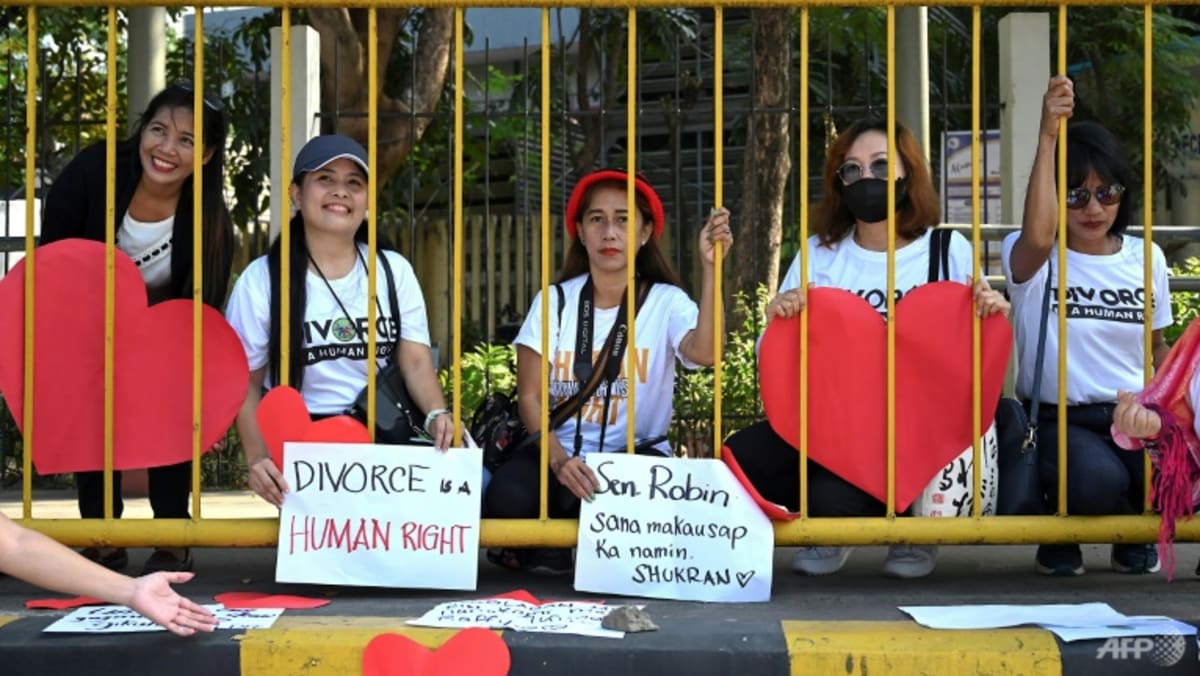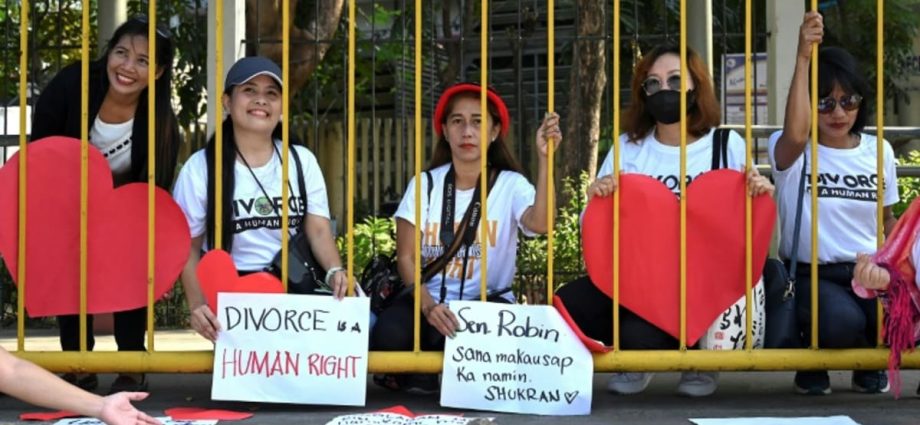
A controversial birth control law was passed in 2012, despite strong opposition from the Church.
And in 2018, majority and opposition parties in the House of Representatives approved a divorce bill that later stalled in the Senate. It was the first time such a proposal had got that far.
Surveys conducted by polling company Social Weather Stations show a shift in Philippine attitudes towards divorce.
In 2005, 43 per cent of Filipinos supported legalising divorce “for irreconcilably separated couples”, while 45 per cent disagreed.
The same survey in 2017 showed 53 per cent in favour, while only 32 per cent disagreed.
A group of lawmakers is now leading a fresh push to legalise divorce, with several bills filed in the House and the Senate.
“We are not destroying any marriage,” said Edcel Lagman, a congressman and author of one of the bills.
Lagman said divorce was for “dysfunctional marriages beyond repair” and legalising it would enable women and their children to escape “intolerant and abusive husbands”.
Before he was elected, President Ferdinand Marcos said the country should consider allowing divorce, but insisted it should not be easy.
ANNULMENT SCAMS
The burdensome process for getting a court order to end a marriage has spawned online scams offering to secure a quick ruling without time-consuming court appearances.
AFP fact-checkers found numerous Facebook posts spreading false information about the legal process for annulment in order to attract clients, underscoring a growing global trend of fraudsters profiting off disinformation.
One victim told AFP she was charged the equivalent of US$2,400 for an annulment service that turned out to be fake.
She is now considering converting to Islam in the hope of securing a divorce under Muslim law.
“I’m really trying every possible option just to be single again,” she told AFP on the condition of anonymity.
“Annulment takes so long, it’s so expensive and it’s not guaranteed, so I’m seeking a more convenient way.”
Family law specialist Katrina Legarda said the number of people falling for bogus services showed there was a “dire need” for new legislation.
But Father Jerome Secillano, of the Catholic Bishops’ Conference of the Philippines, said the nation should be “proud” to be the only country outside the Vatican “holding on to the traditional concept of marriage”.
“There will always be imperfections in a relationship,” he said.
Secillano said divorcing an abusive partner would “perpetuate the violence” because the perpetrator would go on to abuse their next partner.
“You are not actually curing the disease itself,” he said.
“I’M A SINNER”
Sibonga was raised a Catholic, but stopped attending church to avoid accusations of adultery.
She has a long-term boyfriend, but cannot tie the knot with him until her first marriage is legally terminated.
That her case has dragged on for so long is not unusual in the Philippines, where a creaky justice system can take years to resolve even minor issues.
“People think that because I am still technically married, I’m a sinner,” she said.
“They really believe that what God has united cannot be separated. Really? Even if your husband is trying to kill you, even after everything he’s done, divorce is still not allowed?”
Sibonga said her relationship with her husband had been traumatic and had pushed her to attempt suicide twice.
She does not want her children to marry until divorce is allowed.
“I told them they can cohabitate and have as many children as they want, but I won’t ever consent to them getting married,” she said.
“I just don’t want them to end up like me.”

